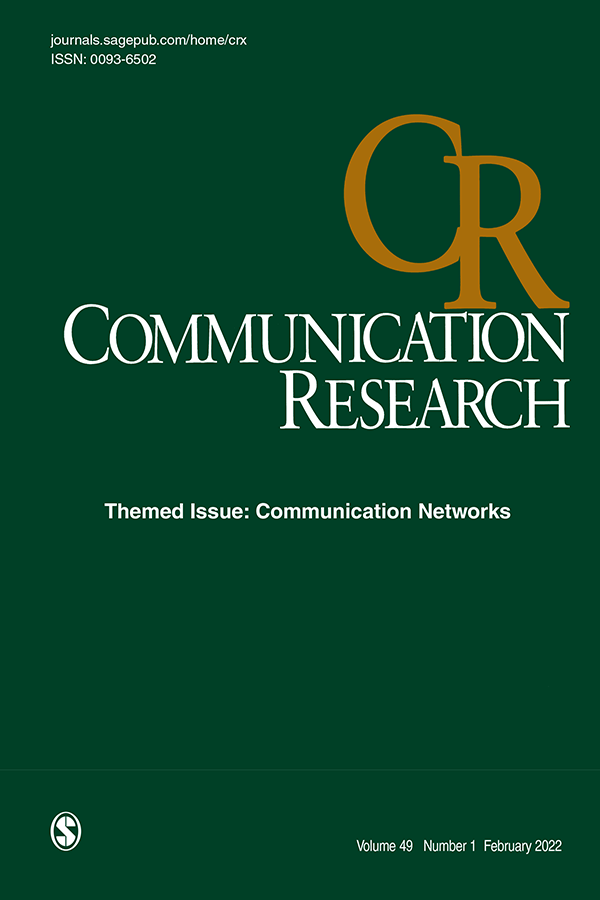The Effect of Dynamic Norms Messages and Group Identity on Pro-Environmental Behaviors
IF 4.9
1区 文学
Q1 COMMUNICATION
引用次数: 0
Abstract
This study investigates the influence of dynamic norms messages on behavioral intention via perceived future descriptive norms for two different pro-environmental behaviors and tests for the moderating role of group identity in the relationship between dynamic norms and behavior. The findings of an experiment show that perceived future descriptive norms mediate the effect of dynamic norms messages on behavioral intention. In addition, the pattern of dynamic norms message effects is dependent on group identity. When the reference group in a message is viewed as an in-group member and similar to oneself, dynamic norms messages are more influential than conventional low descriptive norms messages; on the other hand, when the reference group is perceived as an out-group and dissimilar to oneself, conventional low descriptive norms messages are more influential than dynamic norms messages. Theoretical and practical implications are discussed.动态规范信息和群体认同对亲环境行为的影响
本研究通过对两种不同的亲环境行为的感知未来描述性规范,探讨了动态规范信息对行为意向的影响,并检验了群体认同在动态规范与行为关系中的调节作用。实验结果表明,感知未来描述性规范介导动态规范信息对行为意向的影响。此外,动态规范信息效应的模式依赖于群体认同。当信息中的参照群体被视为群体内成员且与自己相似时,动态规范信息比传统的低描述性规范信息更具影响力;另一方面,当参照群体被视为与自己不同的外群体时,传统的低描述性规范信息比动态规范信息更有影响力。讨论了理论和实践意义。
本文章由计算机程序翻译,如有差异,请以英文原文为准。
求助全文
约1分钟内获得全文
求助全文
来源期刊

Communication Research
COMMUNICATION-
CiteScore
17.10
自引率
0.00%
发文量
20
期刊介绍:
Empirical research in communication began in the 20th century, and there are more researchers pursuing answers to communication questions today than at any other time. The editorial goal of Communication Research is to offer a special opportunity for reflection and change in the new millennium. To qualify for publication, research should, first, be explicitly tied to some form of communication; second, be theoretically driven with results that inform theory; third, use the most rigorous empirical methods; and fourth, be directly linked to the most important problems and issues facing humankind. Critieria do not privilege any particular context; indeed, we believe that the key problems facing humankind occur in close relationships, groups, organiations, and cultures.
 求助内容:
求助内容: 应助结果提醒方式:
应助结果提醒方式:


